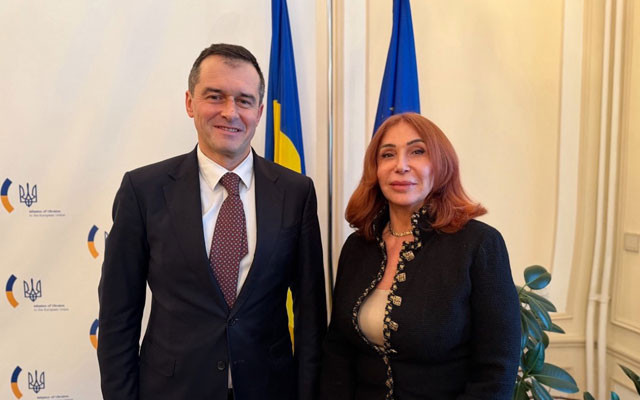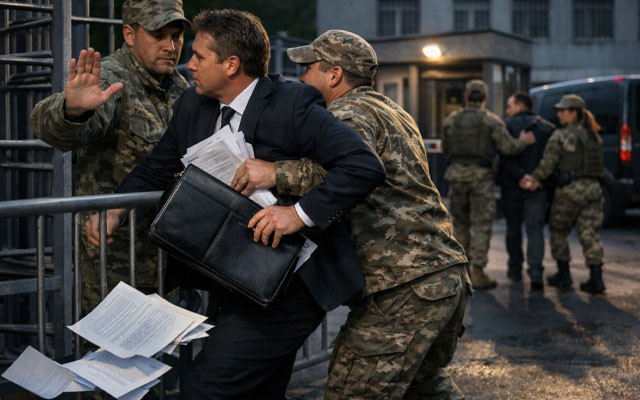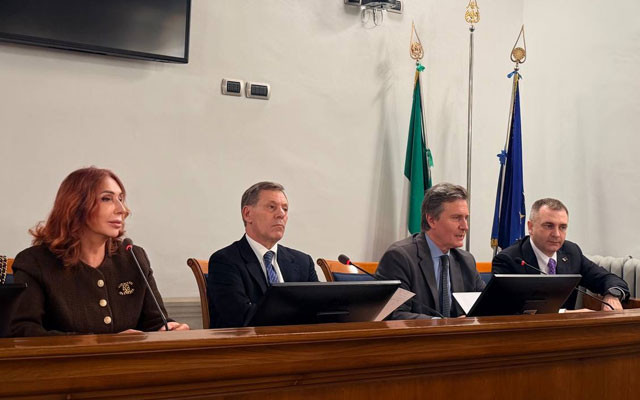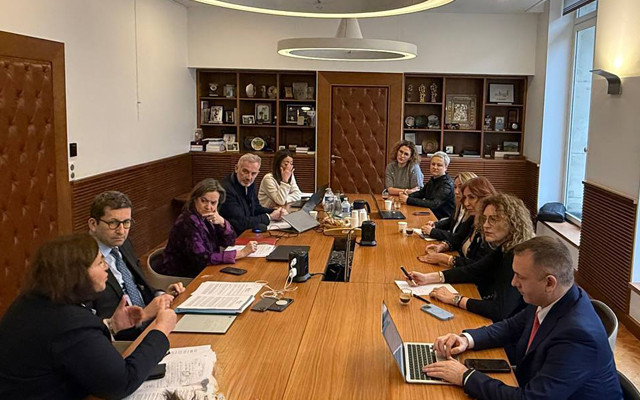6 features to consider when changing taxation during martial law

Amendments to the Tax Code of Ukraine to increase budget revenues through new requirements for businesses and individuals are inevitable. The relevant draft law has recently been adopted as a basis and is being actively prepared for the second reading.
This is the draft Law No. 11416-d dated 30.08.2024 «On Amendments to the Tax Code of Ukraine on Peculiarities of Taxation during the Period of Martial Law», which, in particular, provides for:
- increasing the rate of military duty to income from 1.5% to 5%;
- establishing the obligation to pay the military fee in the amount of 1% of income by single tax payers of the third group;
- setting the military fee for individual entrepreneurs - single tax payers of the first, second and fourth groups at 10% of the minimum wage.
- Setting the basic corporate income tax rate for the purposes of taxing the profits of non-bank financial institutions (except for insurers) at 25%;
- improvement of the proposed model for determining the amount of advance payments for the purposes of corporate income taxation of enterprises engaged in retail fuel trade;
- monthly reporting on the amount of income accrued (paid) in favor of individual taxpayers and the amount of tax withheld from them, as well as the amount of the accrued single contribution.
Given the importance of the amendments, the Ukrainian National Bar Association's Committee on Customs and Tax Law has analyzed the document and made some comments on it.
First, the introduction of advance payments and an increase in military duty rates could have a significant impact on the financial condition of small and medium-sized businesses. For entrepreneurs, especially those operating on the single tax system, the payment of advance payments increases the current tax burden on a monthly basis. In times of economic instability and war, businesses may face liquidity problems, as advance payments require taxes to be paid in advance, even if there was little or no income that month.
Second, the project complicates tax administration and reporting. The transition to monthly reporting for all taxpayers creates an additional burden for both businesses and tax authorities. Small businesses do not always have the resources to keep regular and timely accounting records. This can lead to an increase in the number of tax errors or late submission of reports, which in turn can lead to penalties.
Thirdly, there is a threat of uncertainty in long-term planning for businesses The draft law does not take into account the possibility of adjusting tax rates or rules depending on the economic situation. Since advance payments require tax to be paid in advance, businesses may face a situation where they have to pay taxes based on expected income rather than actual income. This can lead to financial difficulties in times of lower revenues and instability.
Fourth, there is a risk of irrational use of resources by the tax authorities. Increasing the frequency of reporting leads to a significant increase in the administrative burden on the tax authorities. This may divert tax authorities' resources from more important areas, such as controlling tax evasion or combating shadow schemes. As a result, the introduction of monthly reporting may be less effective than it seems at first glance, given that such frequent audits may overload the system.
Fifth, it creates conditions for excessive pressure on entrepreneurs operating in war-affected regions. For entrepreneurs in the regions that have suffered the greatest losses due to the fighting, additional tax liabilities may be excessive. They will have to pay advance payments even if their business is operating intermittently or is recovering from the destruction. Under these circumstances, additional taxes may make it difficult for businesses in the affected regions to recover, especially for small businesses.
Sixth, the flexibility in paying the military tax for individual entrepreneurs is limited. Although entrepreneurs can pay the military tax in advance, the possibility of advance payments «until the end of the year» may not take into account economic dynamics or changes in income during the year. Businesses, especially in wartime, may face sharp fluctuations in income, making fixed advance payments inconvenient and risky.
These comments have been sent to the Verkhovna Rada Committee on Finance, Taxation and Customs Policy to be taken into account when preparing Draft Law No. 11416-d for the second reading.
Popular news

Self-government
The BCU demands a review of the composition of the government working group on reforming the advocacy profession
The President of the UNBA, BCU Lidiya Izovitova, appealed to the Cabinet of Ministers of Ukraine to review the composition of the working group on improving legislation in the field of advocacy and legal practice.

Discussion
Why lowering the age of marriage lacks legal logic
Although until 2012 there was a provision in family law that allowed children to marry from the age of 14 under certain circumstances, its return to Ukrainian law would contradict international obligations and the logic of criminal law.

European integration
Open dialogue between the UNBA and the European Commission on the path to EU
The Ukrainian National Bar Association held a working meeting in Brussels with Mr Wolfgang Nozar, Head of Unit for Governance, Rule of Law and Financial Assistance, Directorate-General for Enlargement and Eastern Neighbourhood (DG ENEST), European Commission.

Self-government
A report on Ukrainian advocacy was presented in the European Parliament
Can a shadow report on advocacy replace the political framework of the Roadmap on the rule of law with demands for the restructuring of self-government? Where is the line between accountability and the seizure of institutions? And how can we respond to narratives with data rather than impressions?

European integration
UNBA and Ukraine's representation to the EU have synchronized their priorities
On February 5, in Brussels, the President of the UNBA, BCU Lidiya Izovitova held a working meeting with the Ambassador Extraordinary and Plenipotentiary of Ukraine, Representative of Ukraine to the European Union Vsevolod Chentsov.

Guarantees of the practice of law
Proceedings opened following attack on advocate in Dnipro
The Committee for the protection of advocates' rights and guarantees of legal practice of the UNBA appealed to law enforcement agencies in connection with an advocate's report of an attack while performing his professional duties. The information was entered into the Unified Register of Pre-trial Investigations and a pre-trial investigation was initiated.

Interaction
«With us — to Europe»: Italian advocacy supports UNBA initiatives
On January 30, a meeting was held in Rome between a delegation from the Ukrainian National Bar Association and the National Bar Council of Italy (Consiglio Nazionale Forense, CNF) on the standards and practices of the legal profession and their significance for Ukraine's European integration process.

Interaction
France confirms cooperation with UNBA on reforms in the field of the rule of law
On January 29, a working meeting between representatives of the Ukrainian National Bar Association and the French National Bar Council (Conseil National des Barreaux, CNB) took place in Paris.
Publications

Volodymyr Matsko Extradition as a systemic form of rights violations

Victoria Yakusha, Law and Business The anti-corruption vertical cannot «take care» of the Bar as an institution, - acting head of the HQDCB

Censor.net Protecting advocates – protecting justice: addressing concerns about the new law

Ihor Kolesnykov A BRIEF SUMMARY REGARDING THE APPLICATION OF THE ORDER ON EXTENDED CONFISCATION IN LATVIA REGARDING FINANCIAL ASSETS OF…

Valentyn Gvozdiy WORKING IN A WAR ZONE

Lydia Izovitova Formula of perfection

Sergiy Vylkov Our judicial system is so built that courts do not trust advocates

Iryna Vasylyk Advocacy in the proclamation of Independence of Ukraine
